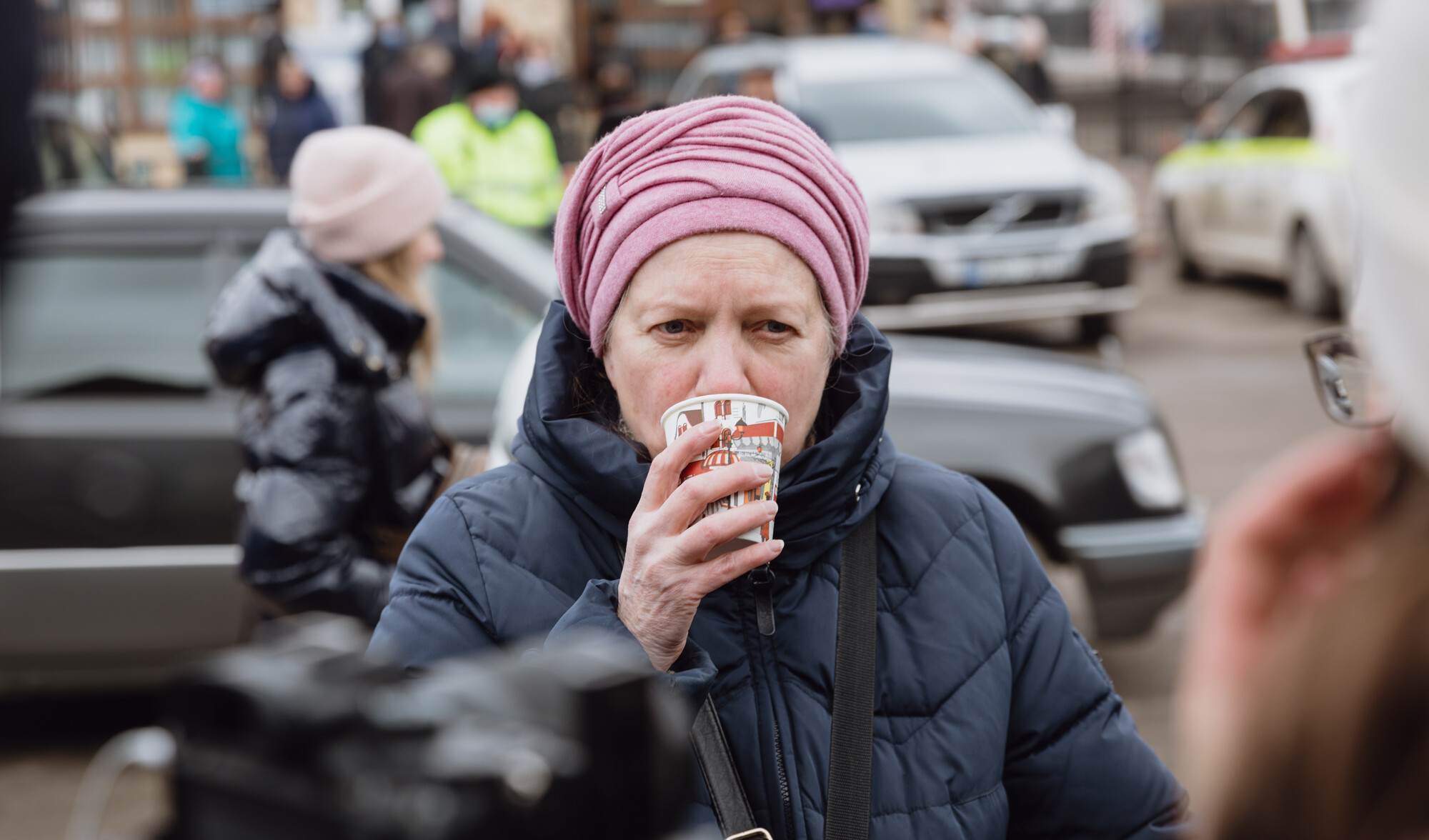Thousands of refugees are crossing the border from Ukraine into Moldova every day, fleeing the dangers of the Russian invasion. HelpAge International is building up its humanitarian presence in Moldova – where it has been working since 2000 – to help as many of those arriving as possible. Samuel Wood, Head of Humanitarian at HelpAge, visited the border and shared his observations.
 We went to a point called Palanca which is located on the southern border of Moldova, not far from the large Ukrainian city of Odessa. This border checkpoint is 2.5 hours drive from the Moldovan capital, Chisinau.
We went to a point called Palanca which is located on the southern border of Moldova, not far from the large Ukrainian city of Odessa. This border checkpoint is 2.5 hours drive from the Moldovan capital, Chisinau.
As we approached the border, we saw more and more cars on the road with Ukrainian plates. People looked tired and stressed. And the closer we got to the border, the more the movement and number of people increased.
At the border, the refugees looked tired, traumatized and confused. Hot food points had been set up to welcome new arrivals, as many had had to wait up to 24 hours to cross into Moldova, enduring temperatures of -2 degrees, along with snow and cold wind.
Some refugees arrived in their cars, but many came by bus – or even on foot – and were looking for transport to continue their journey. Some living on the outskirts of Odessa, woke up that morning to shelling and realised that it was time to leave.
Buses have been organised to meet the refugees and take them into Moldova, or further afield to Romania, Germany, and even Portugal. We saw people with megaphones guiding people to buses.
We were able to talk to a number of the refugees while in Palanca. Some of them had an idea of where they wanted to go, but not all. Many were desperately lacking information and guidance.
We saw a fairly large number of older people arriving, as well as some people with disabilities who were being assisted in their journey. But the number is disproportionately low, compared to the population of Ukraine. This may reflect that many have found it harder to flee their homes and are now stuck in the line of conflict.
The thing that struck me the most was incredible spirit of the Ukrainian people we met, and the sense of camaraderie. Despite all the hardships, the older women we spoke to were smiling and joking. It is amazing to see people be so resilient and able to make jokes in such a situation.
Moldova is the poorest country in Europe with a population of only 2.5 million. 250,000 refugees have already arrived in the country and their presence is being felt in many places. In the hotel where I am staying, many rooms have been given to refugees. The Moldovan government and its people are providing incredible support to those arriving in their country to escape from conflict.
